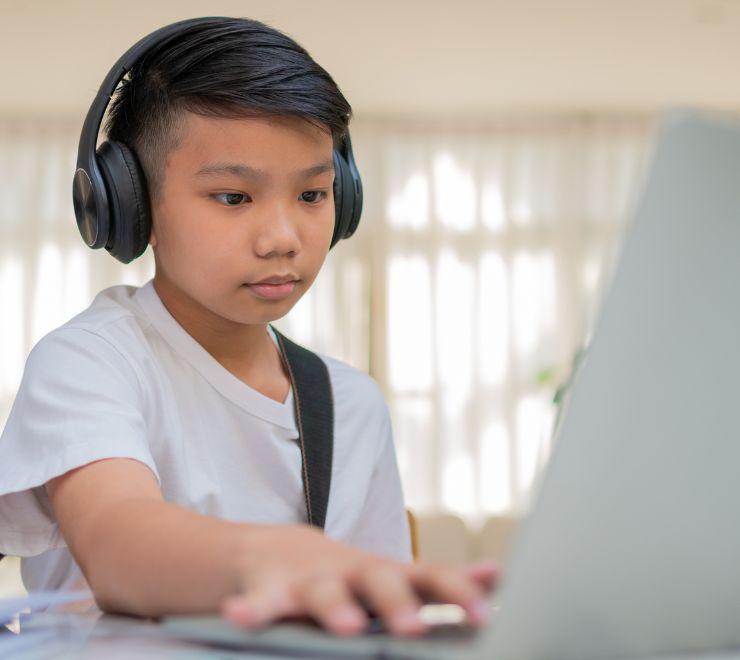What is cyberbullying?
If someone is using technology to intimidate or harass a young person, that young person is experiencing cyberbullying. Cyberbullying may include:
- harassing or threatening someone through text, email or social media
- posting private or embarrassing photos online or sharing them among peers (including nude or sexual images)
- creating a website about someone in order to humiliate them
- being verbally abusive or offensive to other players when gaming online
- creating fake social media accounts that ridicule someone
- stealing someone’s password and then impersonating them online
- spreading lies, rumours or secrets online
Cyberbullying can be really hard to deal with, especially since messages and images are hard to control once they’re online. And because of the anonymous nature of the Internet, certain forms of cyberbullying — like spreading mean and hurtful rumours — can happen quickly and discreetly, sometimes before the young person who’s being targeted even knows it’s happening.
How can I tell if a young person is experiencing cyberbullying?
Young people who are experiencing cyberbullying may:
- seem upset when online
- avoid a computer/device or quickly turn off a computer/device when an adult(s) approaches
- seem reluctant to go to school
- appear withdrawn, anxious or depressed
If you notice any of these signs, it’s important to talk to the young person directly.
Talking to a young person about cyberbullying
It can be hard for young people to share that they’re experiencing cyberbullying for many reasons (e.g. they may be afraid of having their device/Internet privileges restricted, losing friendships, feeling embarrassed, etc.). But discussing the situation with a safe adult is the first step toward getting support.
If you think the young person in your life is experiencing cyberbullying, it’s important to approach them about it. You could say, “I noticed you seemed upset when you were on your phone today — is everything OK?” If you’re the parent/caregiver of a young person who’s experiencing cyberbullying, it’s important to reassure them that the harassment is not their fault, and that you’re there to support them through this difficult time. Remember to commend the young person for reaching out for support, and let them know you’re there for them every step of the way.
How can young people stay safe online?
It’s also important to know there are things young people can do to help protect themselves from cyberbullying. The following tips can help young people stay safe online:
- learning about privacy settings/reporting features online (e.g. on social media, in online games, etc.)
- keeping passwords private, even from people close to you
- being mindful of what is posted/shared online (e.g. learning about the risks of posting/sharing sexual photos, etc.)
How can young people reduce the harm of cyberbullying?
To help reduce the harm of cyberbullying, you can teach these five steps to the young people in your life:
- Don’t retaliate: it may be tempting to be mean in response to the person who’s cyberbullying, but it’s better not to retaliate and escalate the situation. By staying calm and not retaliating, you may avoid giving the person who’s cyberbullying the satisfaction of knowing they’ve hurt you.
- Be assertive and stand up against bullying: if it’s safe to do so, you can tell the person who’s cyberbullying that it’s not OK. Use neutral language that calls out the behaviour, not the person. For example, you could say, “Calling someone ‘X’ is not OK. I’m going to hide this comment because it’s hurtful. I encourage others to do the same.”
- Save: make a copy of the message(s) or post(s) before deleting. Having a record can help you report what happened.
- Block: most websites — especially social media — will let you block users whose behaviour is inappropriate or threatening. You can search online for ways to block by platform.
- Tell: always tell a safe adult if you’re experiencing cyberbullying.
What to do if you know a young person who’s experiencing cyberbullying
- Be supportive: avoid minimizing the young person’s experience. Listen to their concerns and reassure them that you’re on their side.
- Act quickly: young people need to know that you can and will help. If the young person who’s cyberbullying is a student, consider reporting it to the school principal or their parent(s)/caregiver(s). If you feel that a young person’s safety is at risk as a result of cyberbullying, call the police. You can also report harassment to your Internet service provider (ISP). Remember, it’s important to include the young person who’s experiencing cyberbullying whenever reporting the abuse.
- Stay aware: keep computers/other devices in central locations where you can see them and monitor the young person’s reactions.
Help is out there
If you know a young person who’s struggling with a problem, big or small, you can encourage them to contact Kids Help Phone for support. We’re available 24/7/365.
Brought to you with the support of:















